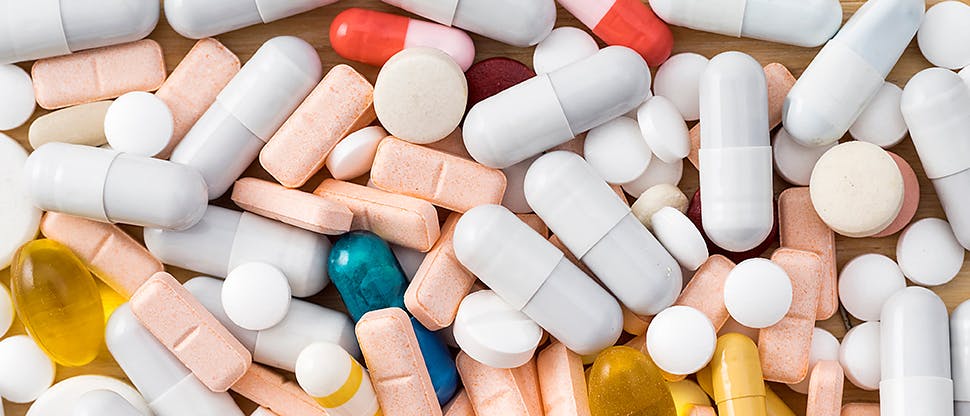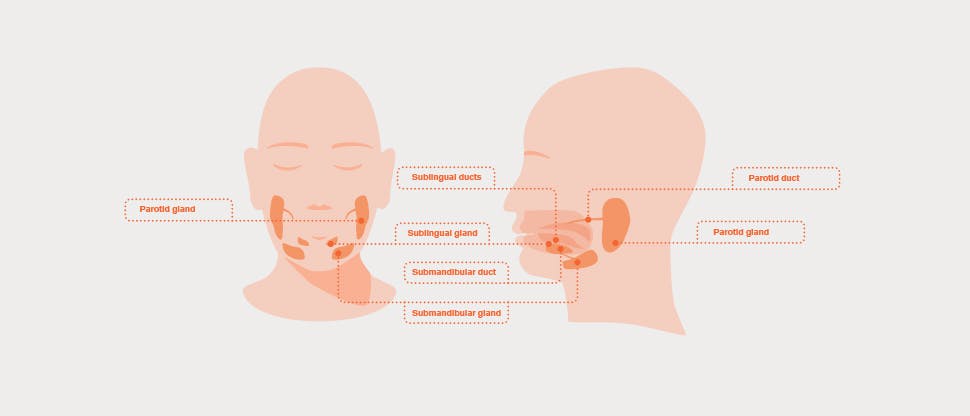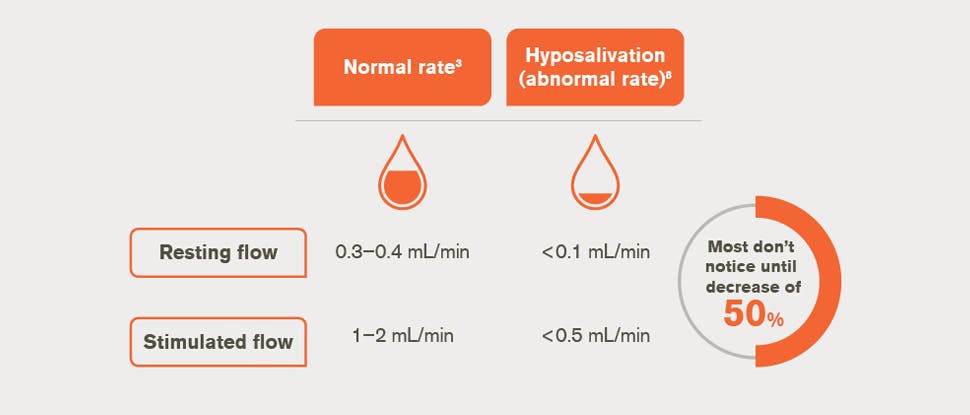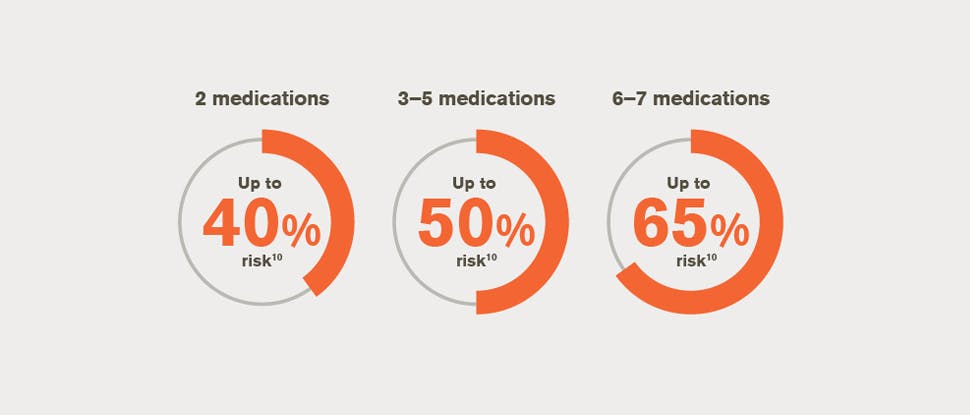Dry Mouth: Causes and mechanisms

What causes dry mouth?
The causes of dry mouth
- Taking medication is the number one cause1 of dry mouth as it is a side effect of many common medicines2,3
- Taking 4 or more medications may increase the risk of dry mouth by 40%4
Other causes include conditions such as Sjögren’s syndrome, diabetes and salivary gland damage5,6
Salivary gland hypofunction
Dry mouth is associated with changes in saliva composition and may have no immediately identifiable cause.3,5 Salivary gland hypofunction – the objective measurement of reduced salivary flow – can be associated with:3,5,7,8
- Medical treatments and polypharmacy
- Lifestyle choices
- Health conditions
- Damage to the salivary glands

Salivary gland physiology
Three main salivary glands produce 90% of saliva.5 These glands produce the two major types of secretion that form saliva:5
- Serous fluid (mainly from the parotid and submandibular glands)
- Mucous (mainly from the submandibular and sublingual glands)
For all day & night symptom relief from dry mouth
Impact on patient quality of life
Find out about the impact that Dry Mouth has on patients’ daily lives


